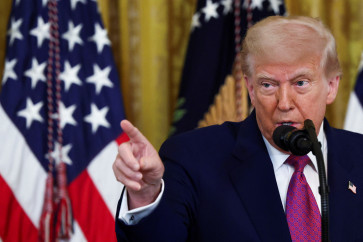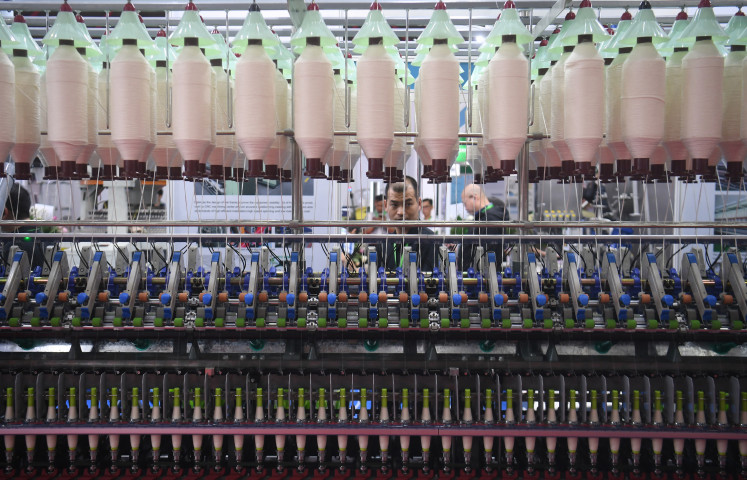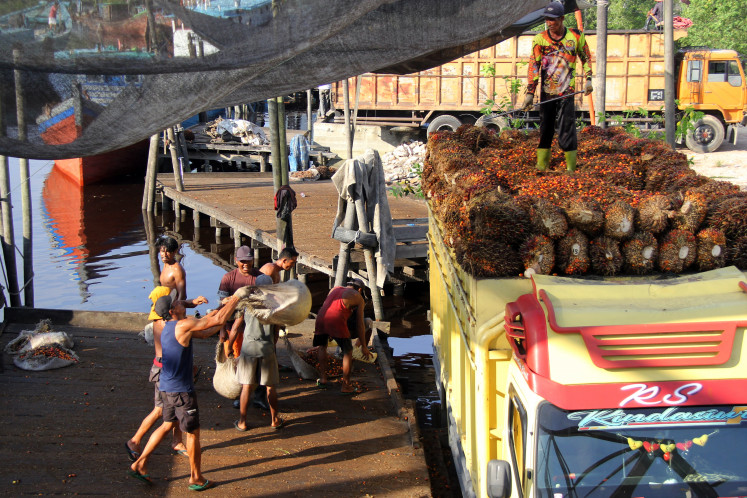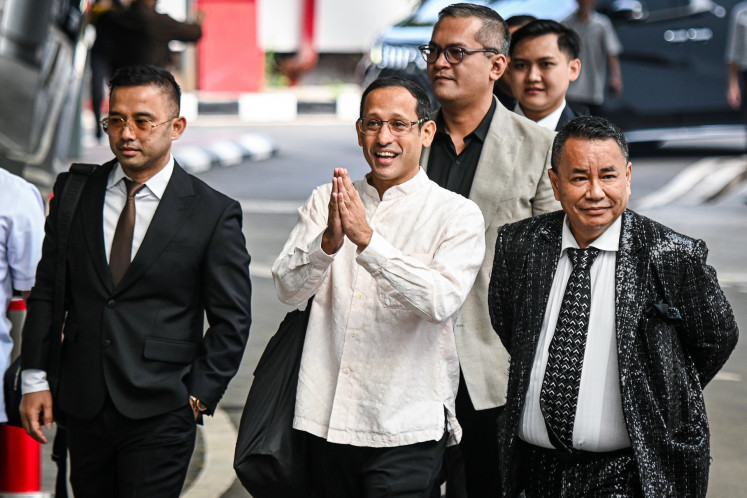Popular Reads
Top Results
Can't find what you're looking for?
View all search resultsPopular Reads
Top Results
Can't find what you're looking for?
View all search resultsChristianto Wibisono: Seeking justice a decade after riots
In an interview with BusinessWeek magazine in 2000, noted economist Christianto Wibisono, who then still resided in Washington DC, the U
Change text size
Gift Premium Articles
to Anyone
In an interview with BusinessWeek magazine in 2000, noted economist Christianto Wibisono, who then still resided in Washington DC, the U.S., was portrayed as the vengeful gadfly of Indonesia.
"I will not return to Indonesia unless there's a trial on the May (1998) incident and other crimes against humanity by the Nazi-type regime," he told the magazine.
There was fire in his words, which were quoted in the article titled "Keeping an Angry Eye on Indonesia".
Wibisono, an ethnic Chinese-Indonesian who established and headed an influential research agency called Pusat Data Bisnis Indonesia during the Soeharto era, was a victim of the anti-Chinese sentiment that arose during the May 1998 riots, in which a number of Chinese-Indonesian women were allegedly harassed and even raped.
A mob ransacked and burned the house of his daughter, Jasmine Wibisono, in Pantai Indah Kapuk, North Jakarta on May 13, a day after the military opened fire against rallying students at Trisakti University.
Jasmine managed to escape from her house with her husband, Tandyo Welianto, and her two children; Christabel and Christopher.
A month later, Wibisono received an a mysterious letter containing offensive remarks -- the writer, calling himself "Ponidjan", endorsed the burning of his daughter's home and threatened to kill him. On June 11, 1998, Wibisono and his family fled to Washington DC.
When The Jakarta Post met Wibisono at the Bentara Budaya Cultural Center recently, he seemed a far different man to the one he had been portrayed as by the foreign magazine. The soft-spoken Wibisono was chatting with Kompas daily patriarch Jakob Oetama at a book-launching ceremony for Nirbaya: Catatan Harian Mochtar Lubis dalam Penjara Orde Baru (Nirbaya: Mochtar Lubis' Diary behind the New Order's Prison), by Mochtar Lubis.
The 63-year-old, who had just returned from an international conference in Washington the day before, did not come to the event as a speaker: Like Lubis and many other pro-democracy intellectuals under the New Order administration, Wibisono also felt the pinch of living under the authoritarian regime.
He kept his voice low when asked about his reflections on Indonesia a decade after the atrocious events that helped topple Soeharto and saw him flee from Jakarta.
"We know that the May riots happened. What we need to do now is try to prevent similar incidents from happening again. We can do this only by creating a human rights tribunal to try those responsible for it. If there's no trial, people will think that the state is giving impunity to them. This will never be good for the future of this nation," he told the Post.
"We just do not want it to happen again, that's all," he added.
He said the state should know that the bloody sectarian conflicts that have occurred in Poso, Central Sulawesi, and other regions were also rooted in the state's unwillingness to bring to justice the people who were responsible for the May unrest. He said he believed the state apparatus should be questioned first, as it had the obligation to protect its citizens but failed to do so during the riots.
"Letting a crime happen is also a crime for state apparatus," he said.
He acknowledged, however, that it would take a long time and would require a joint effort of many parties to reach that goal.
"I'm glad the National Commission on Human Rights has been trying to move on with this case. We have to fight for it and it takes time. It even took decades for a man like Simon Wiesenthal to bring the Holocaust war criminals to justice," he said.
Wibisono returned to Indonesia in early 2007 after a dramatic, spiritual experience that changed his life when he was being treated at a hospital in New York.
He was unconscious -- a condition between life and death as he called it -- for four hours after suffering severe bleeding following sinus surgery.
He said he felt like he was traveling in time, while having a conversation with Archangel Gabriel.
"I talked to Gabriel and I told him that I want to do something for Indonesia if I still have time," Wibisono said as he recalled his life-and-death experience, which, he added, was actually more traumatic than the May riots.
Wibisono had actually been asked to return home to Indonesia twice by the country's former presidents, but he chose to stay in Washington: BJ Habibie and Abdurrahman Wahid had both offered him the prestigious position of the country's economic minister, but he declined the offers.
He said a decade after the incident, Indonesia -- the executive and the legislative, as well as the people -- were not prepared for future challenges, including a possible financial crisis that could trigger another mass riot.
He criticized, for instance, the current uneven relationship between the executive and the legislative, which he considered counterproductive to development. He also deplored the fact that sectarianism increased after reformation, with more people becoming intolerant and zealous in regard to ethnicity and beliefs.
"I think the 'reformation' we had was half-baked. We have to make it fully baked so that all elements in the country are ready to meet the challenges ahead," he said.
"Some say reformation is out of line. I disagree with this because it is like saying that people want to go back to the previous state, which is the time of the New Order," he said.
With his newly-established institute, the Global Nexus, Wibisono said he hoped to contribute to the country by offering the government input regarding the latest international geopolitical developments.
"We have to be competitive and play our part on the global scene and raise our dignity as a nation," he said.
"I hope people will continue to uphold the law and not forget pluralism, democracy and human rights. We need to move in these corridors so we can reach a performance expected from a nation after more than 60 years of independence."










